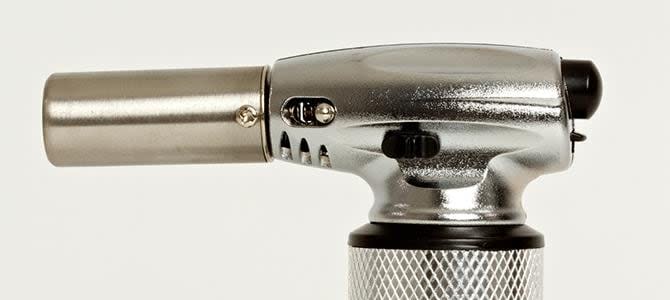Vancouver to ban retail sale of lockable lighters over fire risk

Lighters that can be locked to keep the flame burning will be prohibited from retail sale in Vancouver starting June 28, as the city seeks to curb fire risk.
"Inaction is not a choice in this matter," said Coun. Lisa Dominato at city hall this week before a unanimous vote on the initiative.
The city has been faced with an increase in fires since 2019, many of them caused by materials used to smoke or inhale toxic drugs — principally lockable butane lighters.
According to statistics from Vancouver and Fire Rescue Services (VFRS), 59 per cent of the 4,309 fires the department responded to in 2023 were caused by smoking materials.
The city says from January 2023 to April 2024, 3,128 fires "have been attributed to careless use of lockable butane lighters."
Of those fires, 356 occurred in single-room occupancy (SRO) buildings. The lighters have also been recorded as a probable cause of 79 fire-related injuries and six fatalities.
Restaurants can buy from wholesalers
"It's terrible to be in a situation where we have ostensibly often a tool that's used by a lot of folks, restaurants, etc., that is displacing people, causing harms, deaths, loss of buildings, loss of life," said Coun. Sarah Kirby-Yung about the lighters, whose prohibition comes with a $1,000 fine for violators.
City of Vancouver chief licence inspector Sarah Hicks said people who used the lighters for work, such as kitchen staff, would still be able to buy them from wholesalers or from retailers outside of the city and have them delivered.
She said the prohibition had to strike a delicate balance between those who used the tools for work and concern from community advocates who worried the change could push some people toward injecting toxic drugs instead of smoking them.
"It was stressed by service providers and community members that a phased approach in regulation be used to reduce the possible negative outcomes, as well as minimize the scope of the ban to just the continuous flame device, leaving non-continuous [flame devices] available," said Hicks.
Both Hicks and councillors spoke about the importance of having VFRS continue to work with SRO building operators and staff to educate residents on the risks of open flames and support fire safety training.
Hicks said other feedback over the issue included a call for more education on safer smoking practices and butane lighter fire safety, as well as increasing availability of supervised inhalation spaces, harm reduction supplies for smoking, and smoking resources.
On behalf of council, Vancouver's mayor will also send letters to the provincial and federal governments to ask for further regulations over continuous-flame butane lighters.


